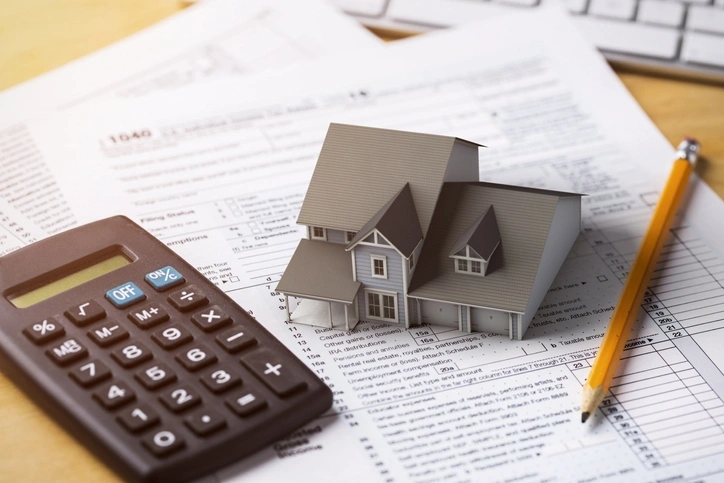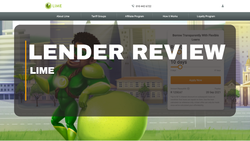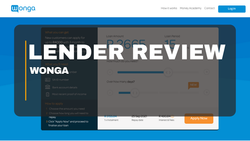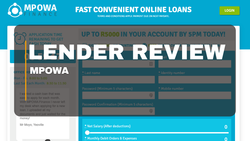If you're a homeowner, you've probably realized that building your dream home can be expensive. Fortunately, if you don't have enough savings, you can always finance the renovation costs. Your financing options mainly include a personal loan and a home improvement loan.
Which type of loan is right for you? Read on to find out everything you need to know about personal and home renovation loans.
What is a personal loan?
You can apply for a personal loan when you need to make home improvements, such as remodelling the bathroom or kitchen.
You then receive a lump sum of money to use for the specific purpose you have in mind. The truth is, you can use a personal loan for any legitimate purpose. This includes weddings, car repairs, medical bills, debt consolidation, plus more.
Sometimes, lenders have a specialized loan they call a home improvement personal loan. But you can still take out a general personal loan to make home repairs and renovations. Here are the features you need to know about a personal loan for home improvements.
- You get a lump sum: If approved, you'll receive a lump sum that typically ranges from R2,000 to R250,000, depending on borrowing limits and how much you can afford.
- The loan is unsecured: You don't have to offer collateral or security for the loan.
- The application is faster: Personal loans generally have a straightforward application. If you apply online, the process is faster, and you can receive the funds quickly.
- Interest rates depend on credit score: Since you don't have to offer security, the lender lowers the risk with personalized interest rates based on credit scores. Borrowers with excellent or good credit scores tend to get lower interest rates.
What is a home improvement loan?
A renovation or improvement loan is any type of loan you can use to pay for home renovations and repairs. The most commonly referred to home renovation loan is the home equity loan. A home equity loan is only available to borrowers who already have a mortgage and have built up enough equity.
Equity is the difference between the value of your house and the amount still left on the mortgage. So, let's say, for instance, that your home is currently valued at R300,000, but you still have R200,000 left to pay on your mortgage. That means you have built equity amounting to R100,000.
You can borrow back that equity to cover home improvements. This explains why a home equity loan is sometimes called a second mortgage. Once you take out a home equity loan, you'll start making repayments for that loan on top of the mortgage payments you already have.
Usually, lenders allow you to borrow up to 85% of your equity. Here are the additional details you need to know about this type of home renovation loan.
- You get a lump sum: As with personal loans, you'll receive the money all at once if approved.
- It's a secured loan: The loan uses your home as security for the loan.
- Interest rates are lower: Since your home is used as collateral, the lender's risk is lower. So the interest rates are also lower than unsecured personal loans.
- Lengthy application process: Applying for a home equity loan takes time because there's a lot of paperwork involved. In addition, the lender has to evaluate the value of your property so the whole process can take a few weeks.
- Longer repayment periods: Home equity loan terms tend to be longer, with repayment periods of up to 20 years or more.
Personal loans vs home improvement loans
Here's a breakdown comparison between personal loans and home equity loans.
Similarities
As mentioned, when you take out a personal or home equity loan, you receive the loan amount as a lump sum. In both instances, you have to make monthly payments to the lender over a fixed period of time.
Both personal and home equity loans have benefits because they allow you to upgrade your home's features. This can potentially improve your home's value and enable you to recover some of the renovation costs if you plan to sell later.
The interest rate is usually fixed, meaning it doesn't change during the repayment period. When comparing loans, be sure to check if the interest rate is fixed or variable. Sometimes, you can get a variable interest rate that can go up or down, depending on market rates.

Differences
The main difference between a personal loan and a home equity loan is that most personal loans are unsecured while home equity loans are secured. Consequently, equity loans tend to have lower interest rates than personal loans.
In addition, because of the reduced risk, the lender will allow you to borrow a larger loan, depending on the amount of equity you have.
On the other hand, personal loan rates and borrowing limits depend your credit score and debt situation. A higher credit score and a low debt-to-income ratio mean you get a lower interest rate and the ability to borrow more.
Pros of a personal loan
- It's easier to apply for: It's generally easier to apply for a personal loan. You only need basic documentation like a South African ID, recent payslips, and bank statements. Once you apply, you can receive loan approval and your money within days.
- It's good for borrowers with a good credit score: If you have strong credit, you can still get a reasonably low rate on an unsecured personal loan, even though the rate might not be as low as a secured loan.
- It's good for borrowers without security: Personal loans don't require you to have a mortgage with enough equity. You also don't need to have another asset, such as a car, to secure the loan. This makes personal loans easily accessible to many borrowers.
Cons of a personal loan
- Interest rates are higher than secured loans: Unsecured loans have higher interest rates than home equity loans to offset the lender's risk. This is especially so if you have a poor credit score.
- Repayment periods tend to be shorter: Personal loans typically have shorter repayment terms than home equity loans. That means your monthly payments will be higher.
- Lower borrowing limits: A personal loan usually has lower borrowing limits to lower the lender's risk. That means it may only be suitable for smaller improvement projects.
Pros of a home improvement loan
- Lower interest rates: Your home acts as security for the loan. This increases the lender's confidence in your ability to pay the loan and gets you a lower interest rate.
- You can borrow more: Since the lender's risk is lower, there's a high borrowing limit on home equity loans. If you have built enough equity, you can borrow all or most of it back.
- Longer repayment periods: Like home loans, home equity loans have longer repayment terms. This flexibility allows for more affordable monthly payments.
Cons of a home improvement loan
- It takes longer to receive the money: It may take a few weeks to process a home equity loan. In contrast, a personal loan can be processed within days.
- You risk losing your property: If you default on your loan, you risk losing your property since the lender has the right to repossess it and sell it to recover the money you owe.
- Interest can add up: Although home equity loans have longer repayment terms, this isn't always a good thing. The interest rate will add up in the long run, making the loan expensive.
- Extra charges and fees: A home equity loan usually comes with additional fees and closing costs that will increase the loan's cost.
Which option is best for you?
A personal loan is generally suitable for you if you:
- Don't have security or are not willing to offer security for the loan.
- If you have smaller renovation projects, such as painting your rooms or upgrading your home's appliances. These projects are more affordable and can be completed quickly.
- If you want an easy loan application process that gives you money quickly. This is handy if you have emergency home repairs.
A home improvement loan is generally suitable for you if you:
- You have a mortgage with enough equity and want to take advantage of the lower interest rates.
- If you're planning to make major home improvements such as kitchen remodelling, bathroom remodelling, or a complete renovation. These projects can be expensive, but you can get a larger loan amount to cover all expenses.
- If your credit score isn't good enough to qualify for an unsecured personal loan.
Find the right loan with MyLoan
To summarize, you can use either a personal loan or an improvement loan to achieve the same goal. These financing options can be beneficial because you can boost your home's value if you use the money for the right upgrades.
Now that you know more about the differences between these two types of loans, the next step is to compare offers from multiple lenders before applying.
The simplest way to do this is to fill out the application form below. MyLoan has top South African partner lenders that will reach out to you with different offers. From there, you can compare loans, choose the right option, finalize your application, and receive your money.
How much do you need?
Get a Loan up to R500 000
Representative example: Myloan is an online loan comparison tool and not a credit provider. We only work with NCR-registered credit providers in South Africa. Our comparison service to consumers is free of charge. Estimated repayments on a loan of R30 000 over 36 months at a maximum annual interest rate of 28% would be R1 360 per month including an initiation fee and monthly service fees. Interest rates charged by credit providers may, however, start as low as 11%. Repayment terms can range from 6 to 72 months.

























